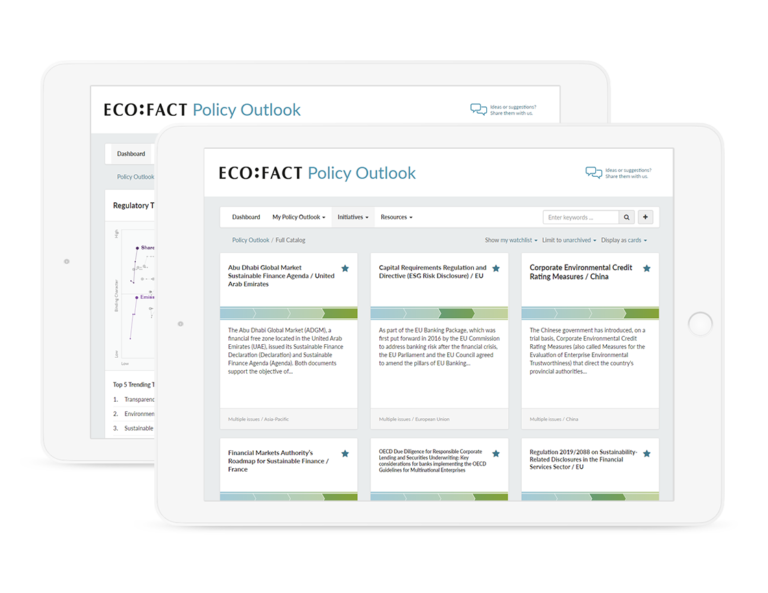You may be falling behind
In the editorial[1] of the last issue of the ECOFACT Quarterly, I pointed out that rapid mainstreaming also brings about major change. We have observed this change happening particularly within the larger banks and insurers.
In a recent discussion, an ESG strategy expert at one of the leading international banks told us how, until recently, it had been difficult for them to attract senior management’s attention to sustainability issues. And if they had managed to do so, it was always the topic discussed at the end of the executive board meeting. He then vividly explained how this has completely changed. Sustainability and climate issues finally have the visibility and time allocated to them that they deserve. The ESG strategy expert found it amazing that senior managers now consider these issues to be of strategic importance – in terms of both risk and opportunity. In his words, the topic is now finally appreciated and fully integrated as one of his company’s strategic objectives.
Unfortunately, we are seeing such change only at the largest international banks and insurers and among smaller, long-term sustainability leaders. There is a real risk that other institutions — be they major national players or smaller organizations — could fall behind. Why is that a problem? Let me point you to two recent publications:
- In a new article,[2] a group of McKinsey consultants explain that companies are “ramping up pressure on suppliers to cut their own emissions or risk losing business. Business leaders are telling us that some of their biggest customers are warning that future contracts will be contingent on significant emissions reductions.” They also point out that carbon taxes may soon have cross-border implications and companies abroad ma y no longer be shielded from stricter environmental legislation. They conclude that “decarbonization is no longer an option.”
- Why this matters to financial institutions is explained by Larry Fink in his latest letter to CEOs.[3] Interestingly, although he emphasizes the opportunities, his observations make it clear why fiduciary duty also matters: “The reallocation of capital accelerated even faster than I anticipated. […] I believe that this is the beginning of a long but rapidly accelerating transition – one that will unfold over many years and reshape asset prices of every type. We know that climate risk is investment risk. But we also believe the climate transition presents a historic investment opportunity.”
The key problem is that many members of executive management teams have not yet understood how profound the changes will be. I will talk about this in one of the next editorials.
Climate change is not going away — which is also true of many other sustainability challenges. There are three main reasons why your institution must address climate risks as a strategic issue:
- Regulators frequently state that climate risks are financially material and, to comply with fiduciary duty obligations, they should be taken into account, both in risk management and investment decisions.
- Climate risks are complex: considering them in underwriting, lending, and investment decisions is a challenge.
- New investment and market opportunities also arise: they may be even more complex and time-consuming, and may require modifications to business models.
Your institution needs to take advantage of the investment opportunities presented by the mainstreaming scenario, but more importantly, you should ensure that it is not your clients and beneficiaries who end up with the high-risk investments in their portfolio.
 All posts
All posts Contact
Contact



